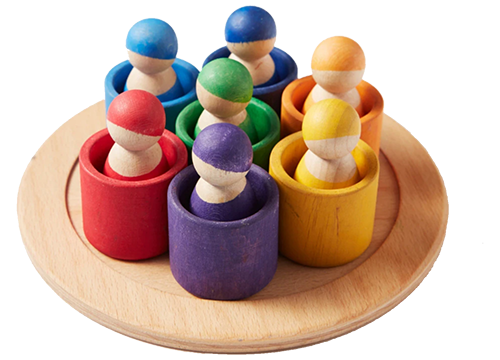BY ESTHER – GATHER & PLAY
For a lot of us parents the use of ‘time out’ as a behaviour management strategy is a given. Many of us experienced it as children, and it’s certainly a common fallback strategy for parents when children aren’t behaving the way they’d like.
Do you remember the feeling of being put in time out?
I’m wondering if it was confusing – were there ever times you couldn’t really figure out exactly what you did wrong? Or if you had an impulsive moment that you really felt like you couldn’t control, which led to you being shut in your room?
For parents, time out can seem like a fool proof strategy. It appears to work wonders – the child misbehaving is forced to stop that particular behaviour. They’re sent to their room, the door is shut, every one calms down in a while and life carries on.
However, for those that are looking to raise their children with social and emotional intelligence in mind, there is another way to support the development of positive behaviour.
What is social and emotional intelligence?
Social intelligence is your ability to get along with others. It’s understanding how to behave in the world, and how to connect with peers.
Emotional intelligence is about not only being able to identify your own emotions, but also to have an understanding of how these emotions present and impact on other people. It’s about knowing you’re not the only person to experience emotions, and about developing and practicing empathy.
The reason time out isn’t a perfect avenue for children to learn social and emotional intelligence is that it relies on parental approval shaping the behaviour, rather than teaching children how to behave based on a developed moral compass and empathy for others.
When you use time out, you’re saying ‘I don’t like that behaviour, so I’m going to remove you from me. If you do the behaviours I like, we spend time together.’
Trying to learn the ‘right’ behaviours for children is really tricky! By removing them from scenarios where they haven’t made good decisions, you’ve missed the opportunity to teach them the appropriate, socially acceptable behaviour they should have been doing instead.
So, the million dollar question is, what can we actually DO instead of time out?
There’s a three step process that could be a great place to start. Imagine that your child has just hit a friend because they wanted a toy – here’s a conversation that could follow.
-
Commentate what the child was trying to do
‘It looks like you wanted a turn with that toy’
-
Name the emotion
‘You might be feeling frustrated’
-
Give an idea to try next time
‘Next time, you can say ‘Can I have a turn?”
Although this process can help you respond in scenarios where you would otherwise have used time out, it is important to pair this with more opportunities throughout the day to talk about emotions and social skill strategies.
At the height of an argument is usually not the best time to teach! Use other opportunities throughout the day to practice this, for example with modelling or through using stories.
With reflection, repetition and the time and space to practice, parents and carers have the ability to raise a generation of children who have excellent social and emotional skills for a better, more connected and compassionate world.
Hello!
I’m Esther, and I’m super passionate about sharing the knowledge I’ve gained over the years around behaviour in early childhood.
I have an Honours in psychology, and majored in early childhood development. Throughout the past ten years, I’ve worked as an educator, senior behaviour therapist, and inclusion professional, as well as my favourite role – becoming a parent!
I firmly believe that parent mental health is incredibly important, and directly influences the way we are able to connect with our children and enjoy our parenting journeys.
I hope that the ideas I share will help add to your parenting toolkit!
Connect on socials
Gather & Play
instagramfacebook[et_pb_signup mailchimp_list=”GrowingKind|cee7dfa366″ description=”

” _builder_version=”3.19.9″]





